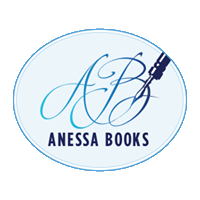 What’s in a great book title?
What’s in a great book title?
Book titles fascinate me. Your title is the second most important piece of marketing your book has—the first, of course, is the cover. So, what goes into a great book title? And how do you write one? How do you test it? (Wait, what? I’ve not only got to write a great title, I’ve got to test it as well??)
Book titles are, of course, a matter of personal preference.
Some authors like to go with something catchy: When I Wasn’t Looking or Undercover Duke. These books peek interest with something that might interest a reader.
Some authors like a pun (yeah, that would be me): A Hand for the Duke (card games are involved), Murder by the Book (murder mystery set in a book store). These tease readers with their word play and give a hint as to what the reader can expect inside—card games, a bookstore, and, quite likely, more word play
And some like something self-explanatory: The Thursday Murder Club, Captivated by an Adventurous Lady. You don’t need to wonder about what those books are about, do you? It’s all right there on the cover. No guessing necessary.
Some authors believe in one word titles: Cursed, Gareth (those are two different books). In these titles, it’s the subtitle that says it all: A Young Adult Vampire Romance, and Lord of Rakes.
Some people like to go with something tried and true (read generic): Love of My Life, or Clue of the (fill in random item mentioned in your book here).
So, how do you choose? How do you write your book title?
- Find out what’s popular in your genre. Book titles are really genre specific and there are some keywords you can put into your book title that either catch a reader’s attention or get picked up by search engines when readers search for books. If you write Regency romance, using an English title will do that. If you write mystery, having the word “death” or “murder” will do the trick.
- Go for something catchy. You want readers to want to stop and see what this book is about. While I was researching titles for this post, two titles got me to stop and click to see what the book was about: The Secret, Book, and Scone Society and A Gentleman Fallen on Hard Times: The Lord Julian Mysteries. Okay, you can tell I’m into mysteries right now, but even more than that, I love historical mysteries… and scones.
- Try to make your title something people will remember. In that way, short titles are better: The Iron Duke. It’s short, sweet, and I’ll remember it when I want to recommend the book to a friend. Repetition works well: Tomorrow and Tomorrow and Tomorrow is a book someone recommended to me just the other night. He only had one word to remember. Or you could go for something descriptive and different: Keep Your Mouth Shut and Wear Beige. I’ve got no idea what the book is about, but it’s definitely a title I would remember.
- Add a subtitle. Like in the one word titles above, it’s the subtitle that really tells the reader what the book is about and will entice.
Okay, so now I should have gotten you thinking about what your title should look like. How do you actually write it and choose one? Two easy steps: 1) make a list of possible titles (just brainstorm and write down as many as you can think of). 2) Ask your friends and people who follow you on Facebook and other forms of social media, as well as your newsletter readers.
Honestly, it’s as easy as that.
Play with title possibilities, narrow the list down to three, maybe four, and then send them out into the world and ask for people’s honest opinions. Your readers and friends will let you know if a title works or it doesn’t.
So, now, you tell me some of your favorite titles—or just titles that have caught your attention no matter how interesting the book that held it.
Oh, and that “brilliant” title Love of My Life was slapped onto one of my books by my then-publisher, Kensington Publishers. I had originally (and since I received the rights back) titled the book An Exotic Heir, which I honestly think is a lot more interesting and has sold a lot more books than Love of My Life has.
